These currents power the actuating devices responsible for the pumping action of a metering pump. This particular type of positive displacement pump is lauded for extreme accuracy and reproducibility throughout continuous precision operation. The cyclical introduction of consistent amounts of fluid into a continuous-flow stream ensures the homogeneity integral to many fluid based industrial and commercial processes. Read More…
Since 1886, John Blue has been a trusted pump company for agriculture and industrial applications. With over 136 years of experience, John Blue has gained a reputation as a quality manufacturer of piston metering pumps, 12-volt pumps and chemical injection pumps. We provide dependability and versatility, while serving various industries. John Blue pumps are “Guaranteed To Do The Job”.
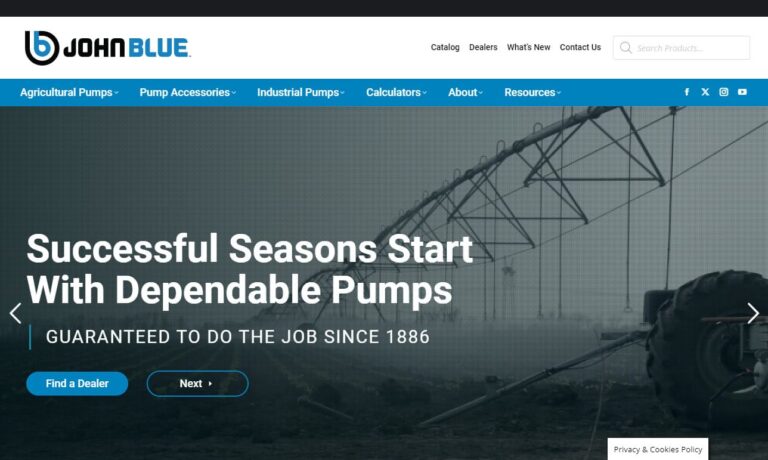
Dewco Controlled Fluid Solutions has been serving industry with fluid metering and control equipment since 1974. With established product lines including metering pumps and solenoid valves among many other products, DEWCO provides quality components for both wholesalers and end users. Our complete system capabilities and repair services mean we can meet your every need quickly and efficiently.
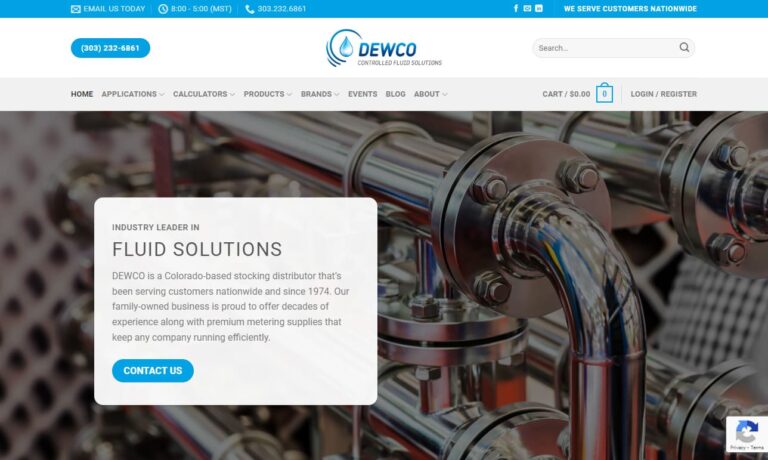
LEWA is your global supplier of metering pumps, process diaphragm pumps and packaged systems. We strive for a close partnership with customers to ensure your complete satisfaction from initial consultation to continuing service and repair, spare parts supply, maintenance and training. A leader in highly precise and high performance pumps, LEWA works with you to find the best component for you.
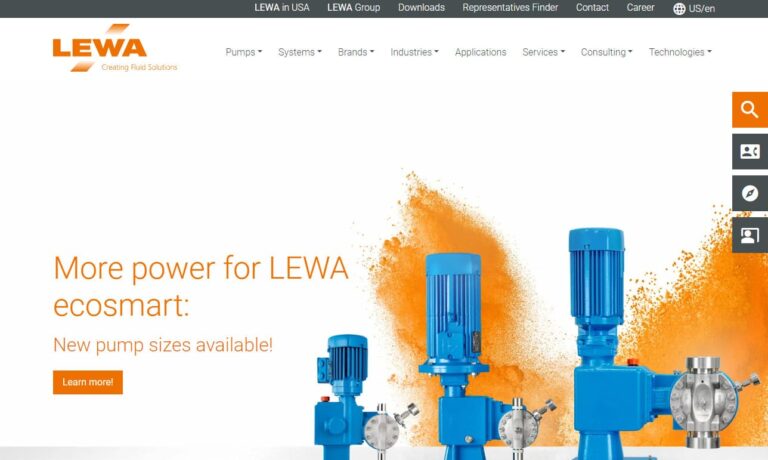
As one of the oldest manufacturers of metering pumps, Randolph has maintained a loyal following by delivering "rugged, reliable and simple to use" products. Randolph machines all the components of its pumps to its exacting specifications and extrudes its own tubing. The Randolph pump can be found working in industries such as printing, food, pharmaceutical, nuclear and wastewater.
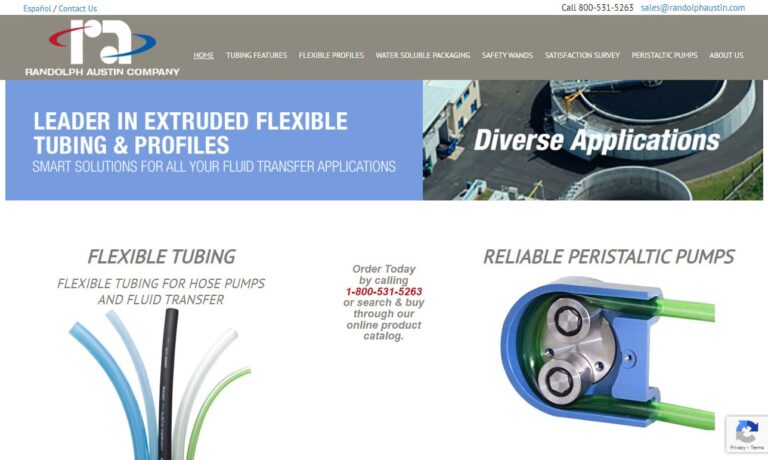
More Electronic Metering Pump Manufacturers
Chemical, pharmaceutical, food and beverage processing, water treatment, medical commercial vending, irrigation, petroleum, milling, plastic fabrication, metalworking and a number of other industries employ metering systems in daily operations. Although alternative power sources such as pneumatic, hydraulic, manual or fuel powered pumping are widely available, electronic metering pumps more easily incorporate current technology such as digital and computerized metering equipment.
Unlike manually operated pumps, computer automation allows for easy adjustments to be made without interrupting the fluid flow or cycle. AC and DC electrical currents are most often utilized, though electronic metering pumps can also operate under the power of the electricity generated by wind, water and solar power. In applications where continuous flow is essential, such as medical dispensing pumps for example, it is beneficial to have a backup generator or battery regardless of the type of electricity in use in case of electrical failure.
The two predominant electrical currents used in the modern manufacturing and operation of metering pumps are AC and DC, differentiated by the flow or directionality of the electrons. Direct current, DC, voltage is created through the use of a magnetic field surrounding the wiring which causes the electricity to flow in one direction as they are repelled and attracted by the magnetic polls. This flow is in a single, forward direction.
AC, or alternating current electricity uses this same principle but with a rotating magnet that causes the electrons to move back and forth. This allows for farther travel with less energy loss than in DC wiring. Both, however, may still be used for electronic metering pumps. Adapters and transformers convert electricity into the most appropriate type and voltage for a specific pumping machine. This electricity is responsible for instigating the motion of the plunger, bellows or other apparatus used to initiate the continued movement of measured fluids.
Though variable displacement constant speed pumps are commonly electronically operated, it is even more beneficial in fixed displacement variable speed models in which adjustments to the flow rate are controlled solely by the frequency of compression and decompression cycles. Additional considerations for electronic metering pumps are similar to those of all metering pumps and include flow rate, maximum pressure and operating temperature, physical dimensions, material construction, stroke and capacity.

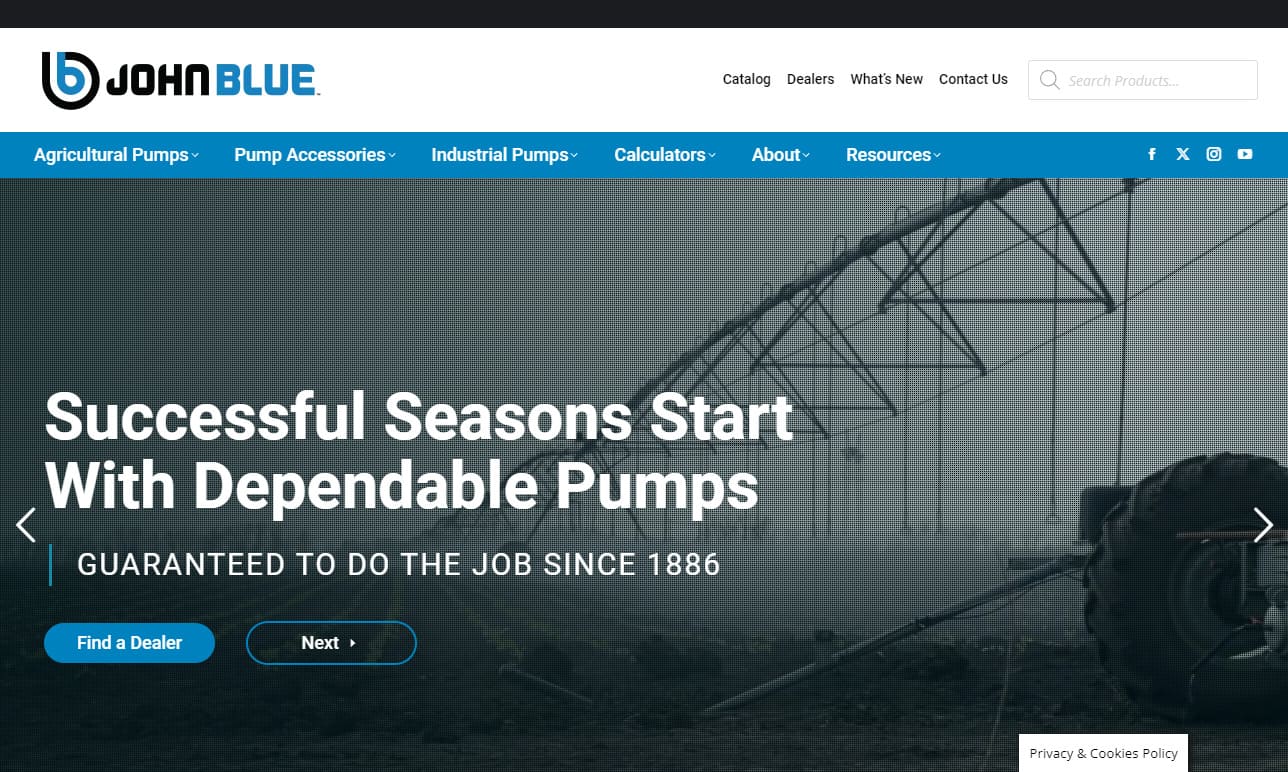
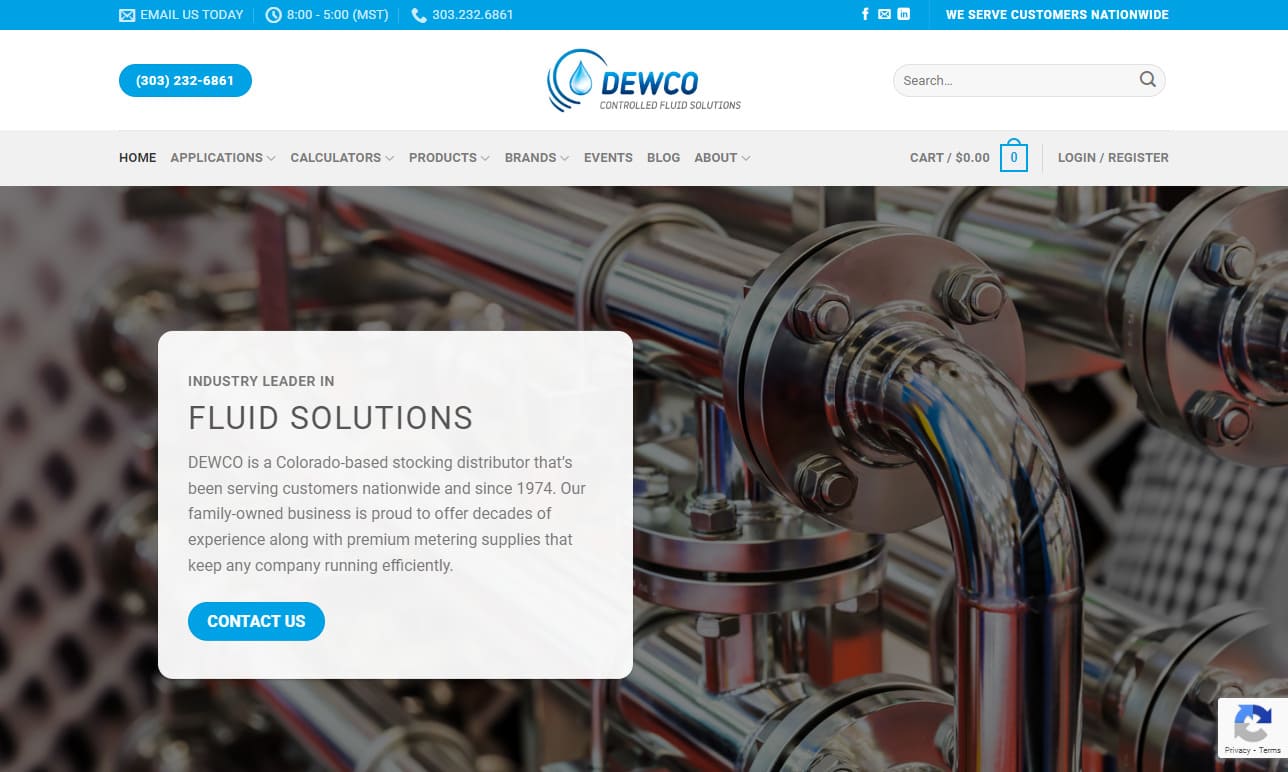
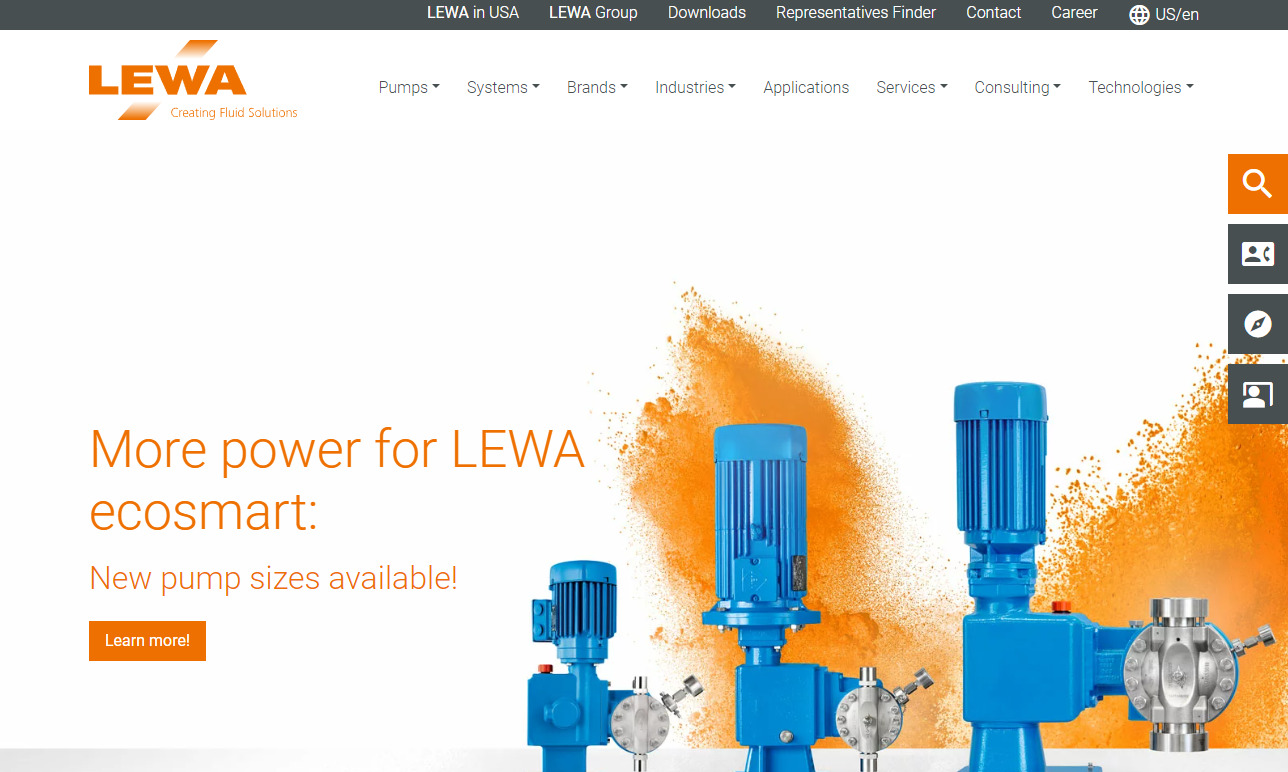
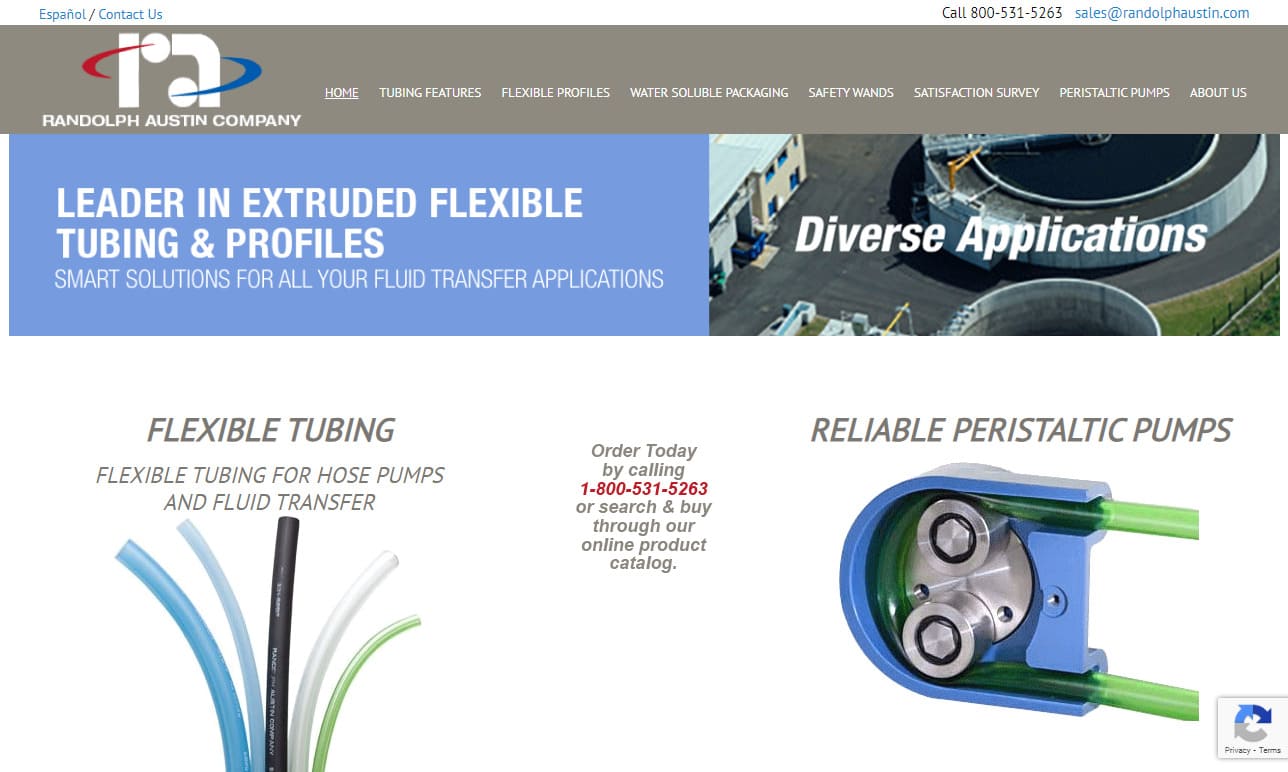
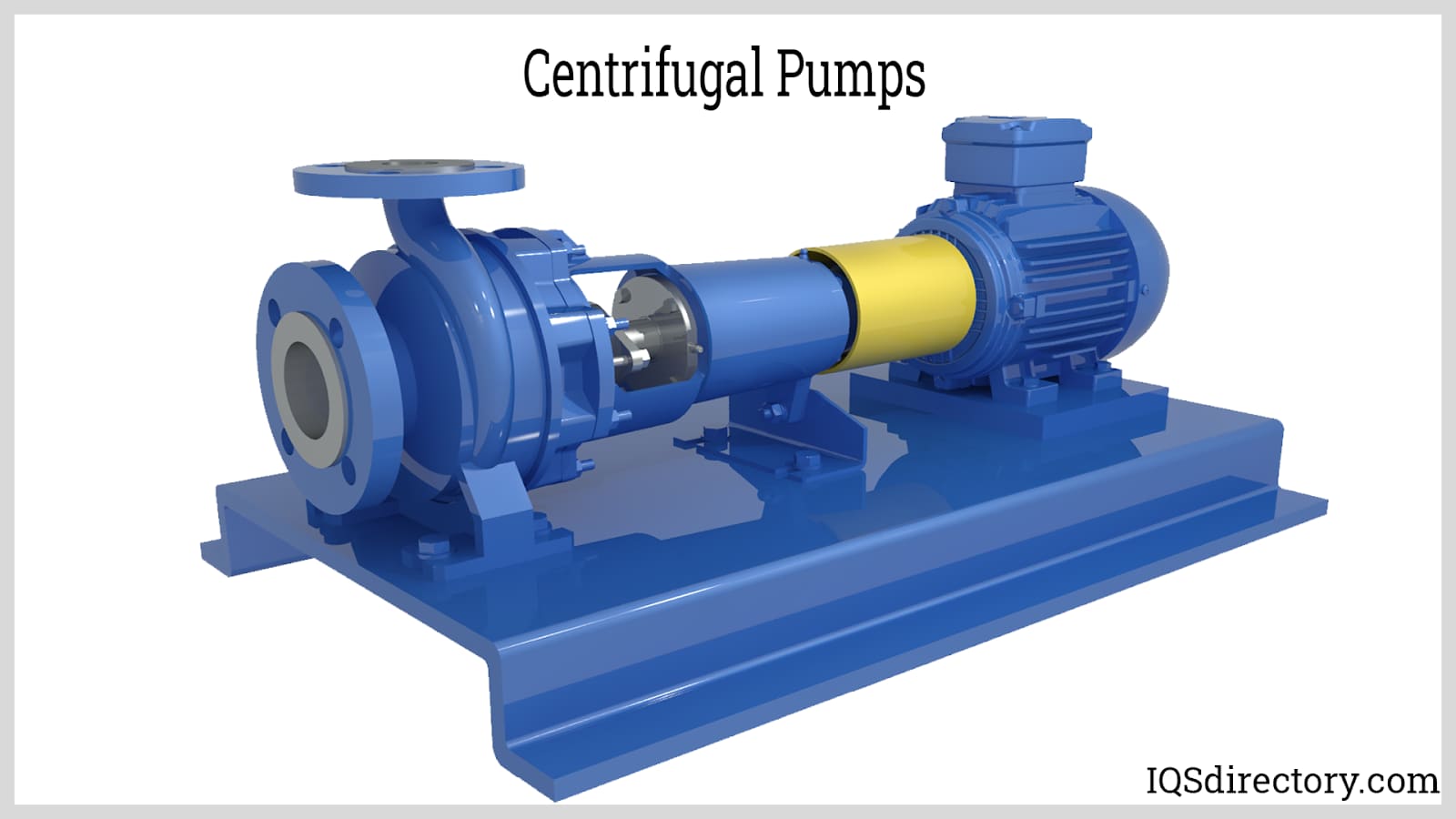
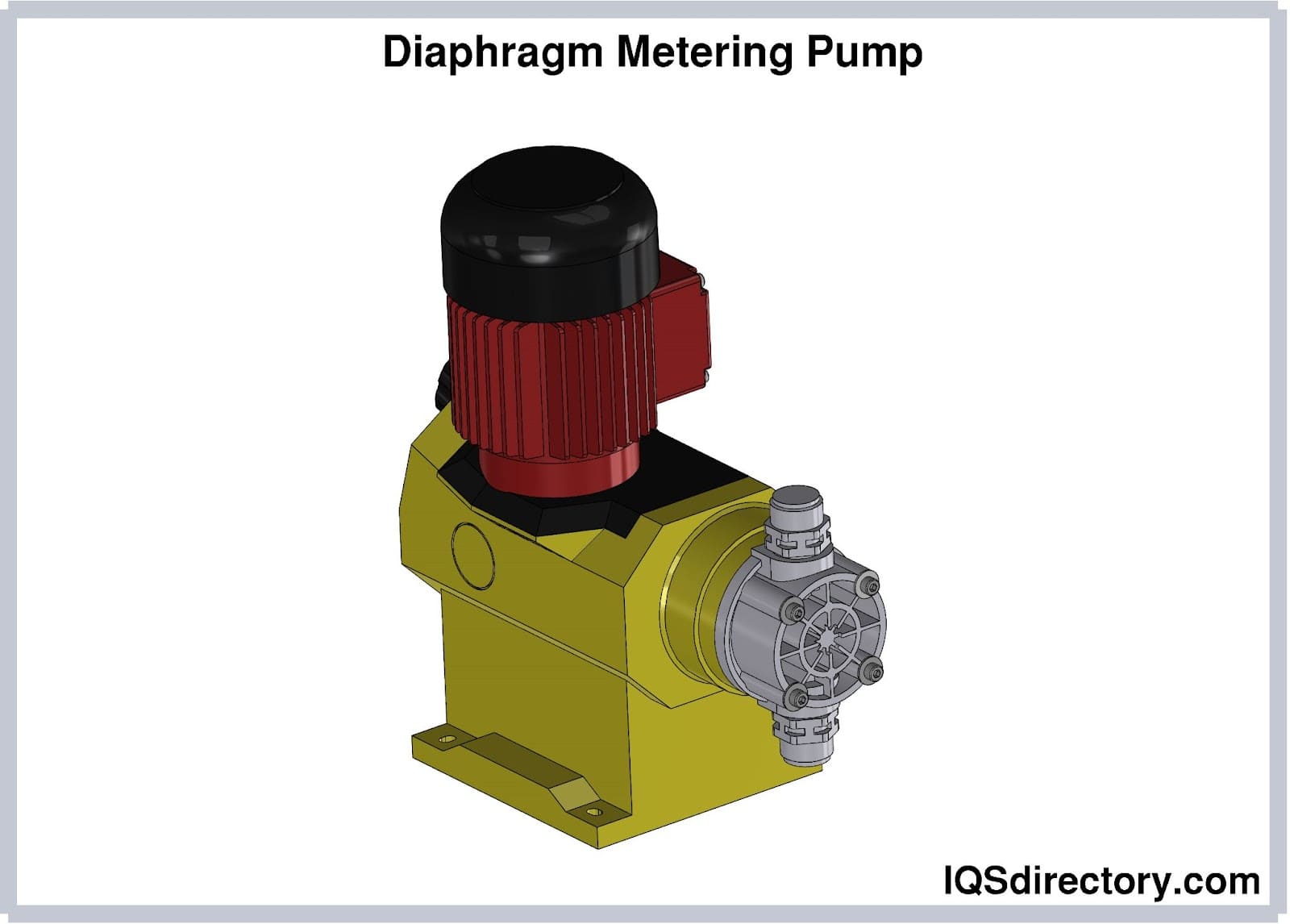
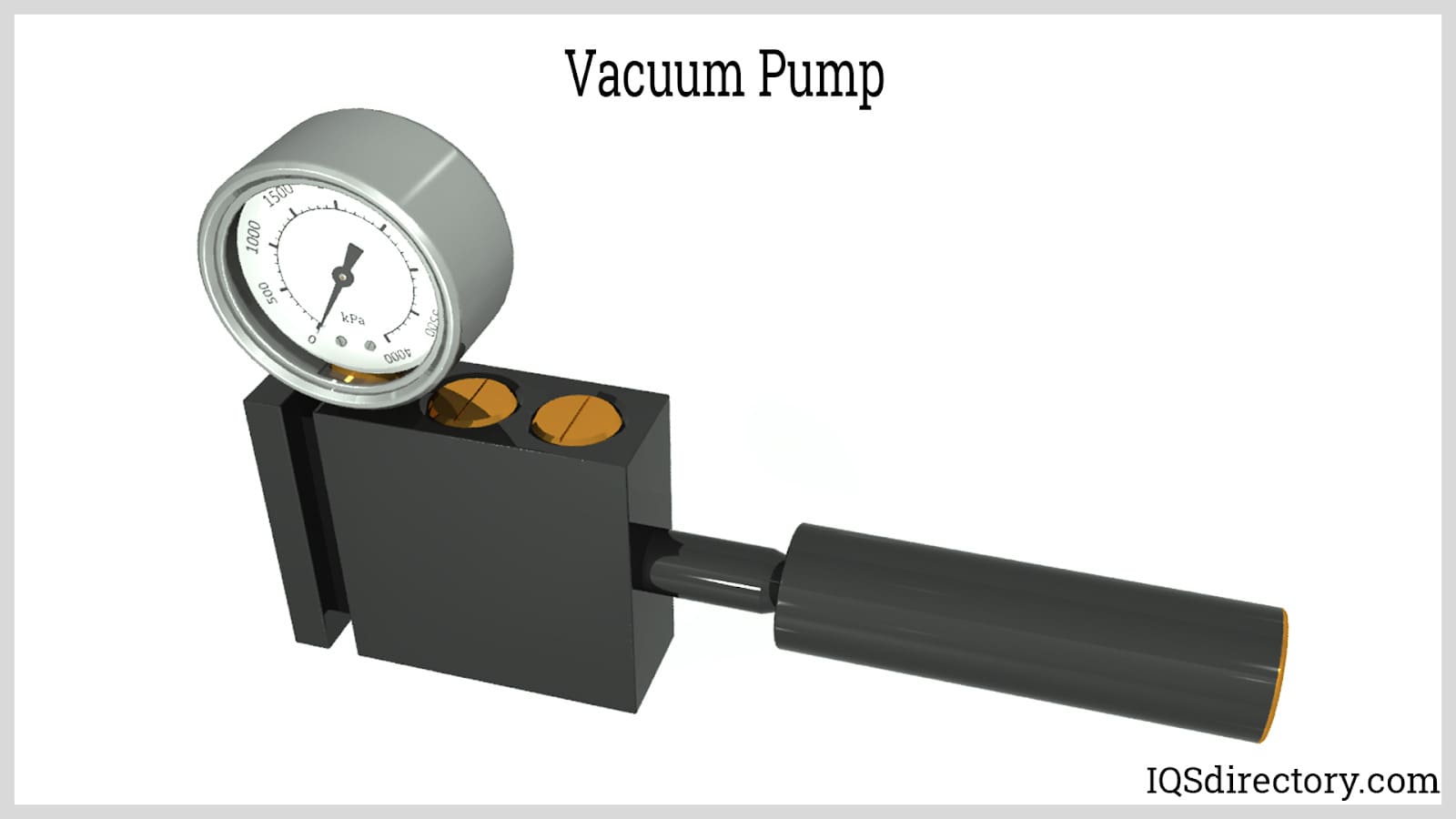
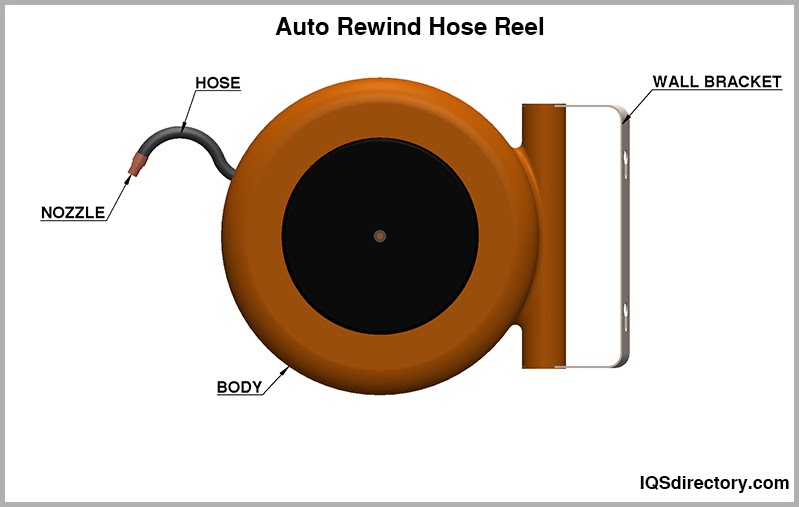

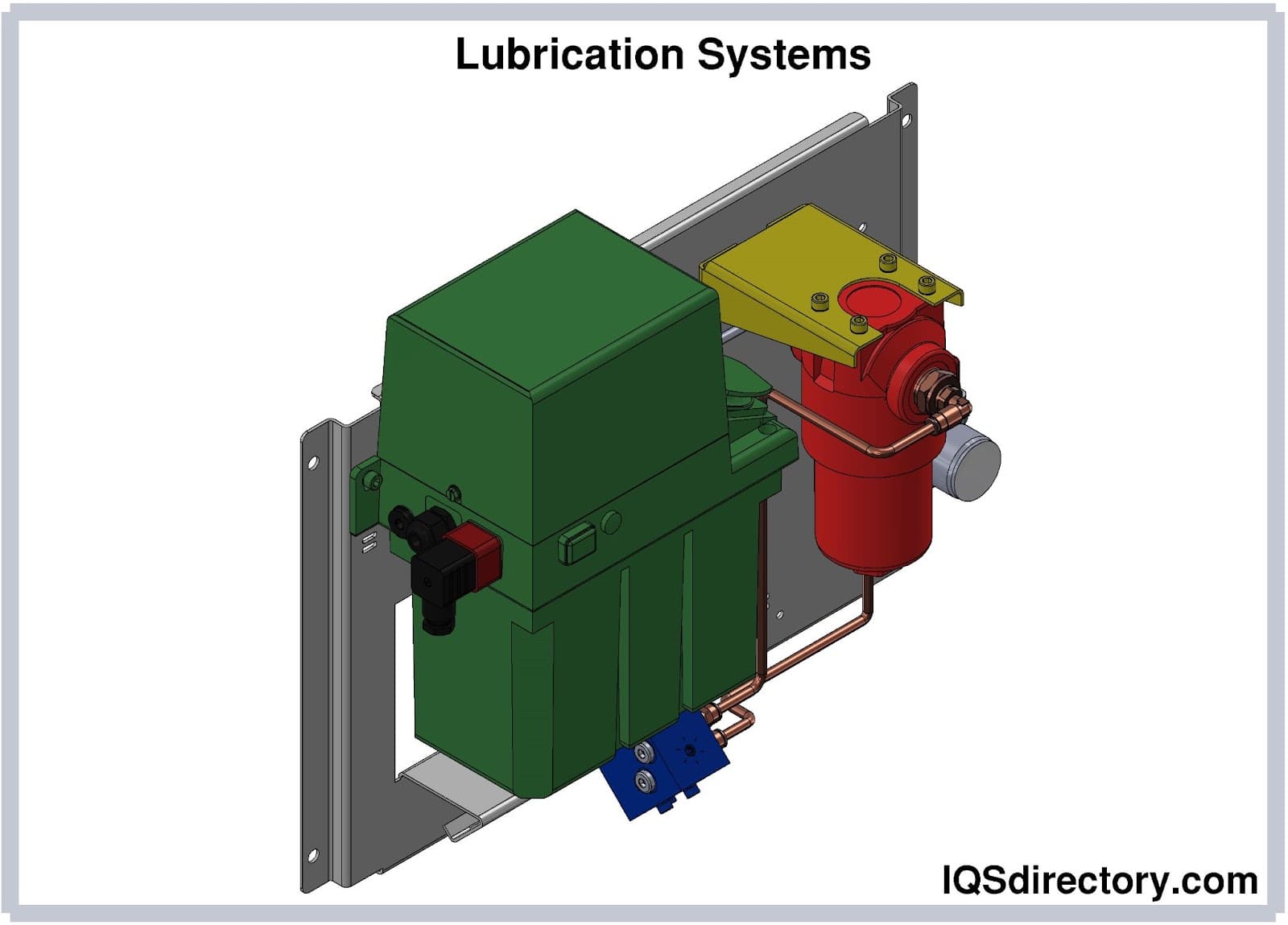
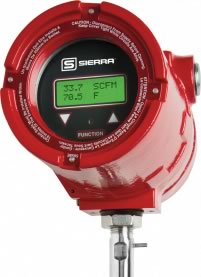 Flow Gauges
Flow Gauges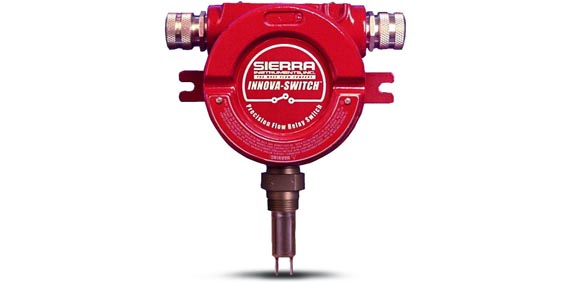 Flow Indicators
Flow Indicators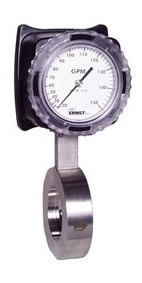 Flow Meters
Flow Meters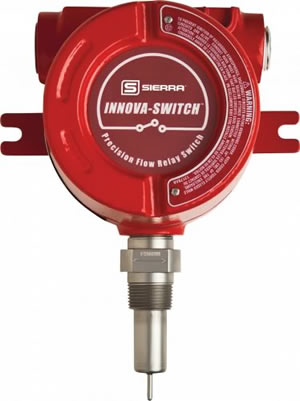 Flow Switches
Flow Switches Castings & Forgings
Castings & Forgings Bulk Material Handling
Bulk Material Handling Electrical & Electronic Components
Electrical & Electronic Components Flow Instrumentation
Flow Instrumentation Hardware
Hardware Material Handling Equipment
Material Handling Equipment Metal Cutting Services
Metal Cutting Services Metal Forming Services
Metal Forming Services Metal Suppliers
Metal Suppliers Motion Control Products
Motion Control Products Plant & Facility Equipment
Plant & Facility Equipment Plant & Facility Supplies
Plant & Facility Supplies Plastic Molding Processes
Plastic Molding Processes Pumps & Valves
Pumps & Valves Recycling Equipment
Recycling Equipment Rubber Products & Services
Rubber Products & Services